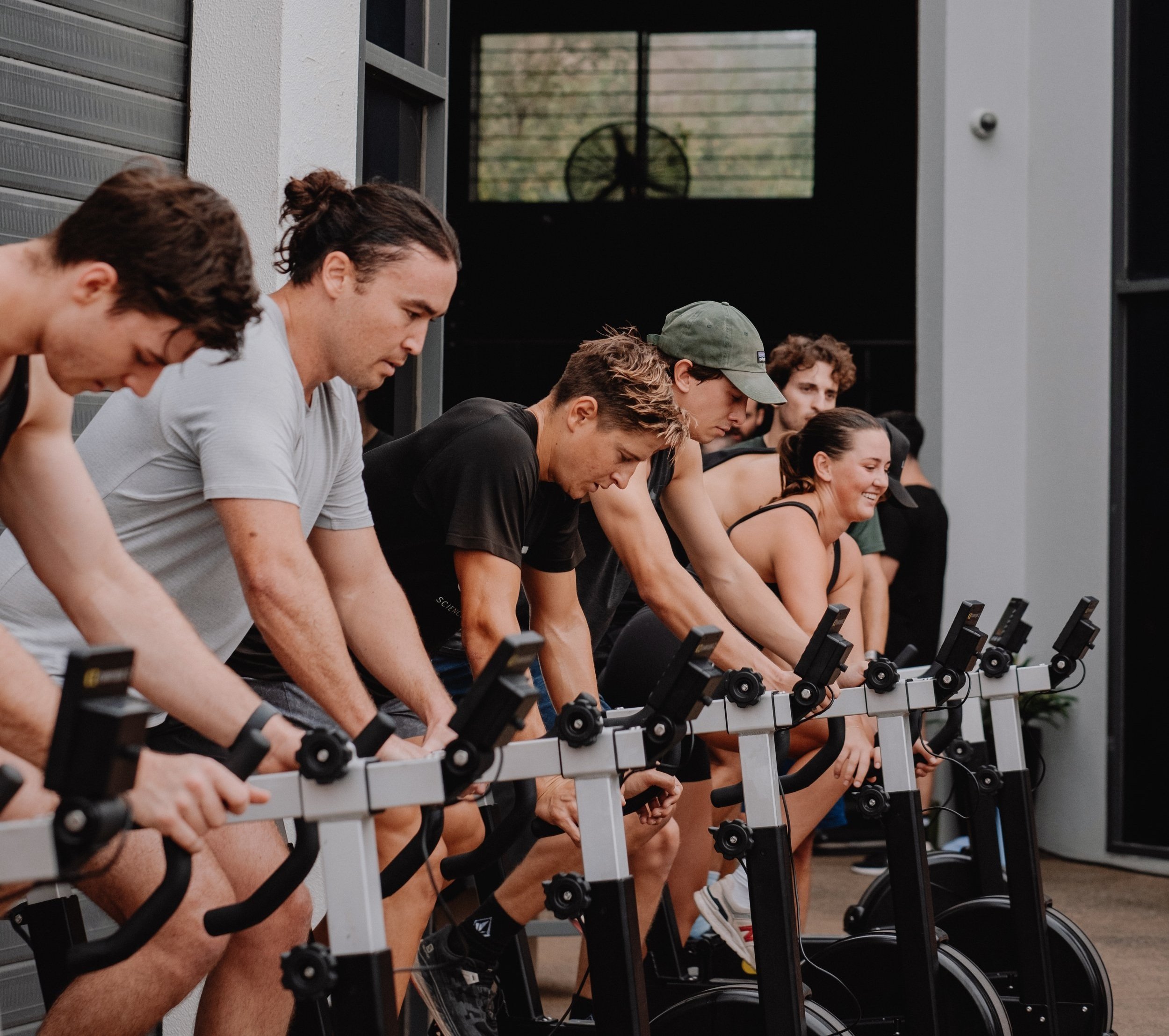What NOT to do in a group fitness program
In my previous blog, I gave a step-by-step process as to how we create the SOF strength program (read here if you missed it).
In this blog, rather than showing you what we do, I figured I would also add in what we DON'T do.
Here are 3 common mistakes that are synonymous with modern group fitness programming that we consistently see:
1: No repetition
"I do not fear the man who practises 1000 kicks once, I fear the man who practises one kick 1000 times"
When creating a program, we don't think of some random burner set, or a new 'workout of the day' for each day of the week. In order to improve, we need repetition - consistency is one of the non-negotiables for getting better.
I've said it before, if you want to get better at juggling, you juggle. If you want to get better at front squats, then you better believe you need to front squat often!
For us, we don't think about adding in an exercise because we saw it on youtube and think it looks cool. Each exercise is there for a reason and has a purpose that complements the entire program as a whole. The movement patterns are thought out before the exercises. We want to build you up to be able to do all the compound movements with technical proficiency and give you the tools for success.
Also, it's a lot more difficult to know if you're progressing when you do something different each day/week!
Our generation is continually being hard-wired to embrace short attention spans and finding the newest, shiniest thing. Our advice, more often than not, repeating a tried and tested method is the way to go!
2: Mixing too much strength work within your conditioning (or vice versa)
"The man who chases two rabbits catches neither."
As an example, there's not much point putting your deadlifts in a set right after the assault bike or countless burpees. Firstly, you are creating high fatigue, so you won't be able to lift as heavy on the deadlifts, which means it will be a pretty poor strength stimulus. This is not good for improving maximal strength. Furthermore, you are also risking a much accelerated technical breakdown, in what is already a fairly technical exercise to begin with. This is where you may run into problems regarding both lifting efficiency and injury.
A deadlift is also a poor stimulus for cardio in comparison to the bike, which is not optimal for improving your conditioning.
So, in summary, the ability to improve both your strength and your conditioning is hindered by having too much cross-over. Therefore, there's a chance you aren't getting better at either, you are simply burning some calories. This is certainly not the purpose of our training program.
Our advice, if you're going to do both strength and conditioning in the same session, do your heavy stuff first and your endurance stuff later, ensuring you do one thing well at a time, rather than two things poorly.
3: Trying to progress everything, every week, all at once.
"Long term consistency trumps all"
While in theory this looks and sounds great, the reality is we need time to adapt, you simply cannot improve on every single variable on every single exercise, every week. While we often hear about the term 'progressive overload', which is crucial to improving, some people think this means every week, everything needs to increase.
If you're adding weight or reps (or both) every single week for a long period of time, you're either very new to the gym and enjoying those beginner gains (strength will increase quicker than an experienced lifter, but it doesn't last forever), or there's a fair chance you started out too light to begin with and weren't even pushing yourself! If you compound that by trying to decrease rest or add in more exercises at the same time, then there's a chance your performance may end up suffering as a result.
Often, as you progress, the more intelligent option can be to only increase one variable each week. For example, if the reps are going up this week then the weight might not need to (and vice versa). Hell, you could even keep things the same for two weeks in a row. Crazy, I know, but it can give ourselves a chance to practise the session and solidify the gains, as we can often fluctuate weekly. Progress is going to be more about creating a consistent stimulus, rather than trying to send it every week and ending up blowing a gasket.
Provided you stay injury-free, consistency and effort with slow progressive overload will have you seeing results without question. But keep in mind, it's not uncommon for very experienced lifters to train for months just to get a 10kg increase in their squat.
Our advice, while it looks good on a sheet of paper that you're applying the principles of progressive overload, remember that sometimes less can be more.

